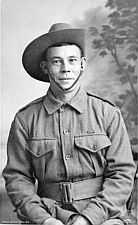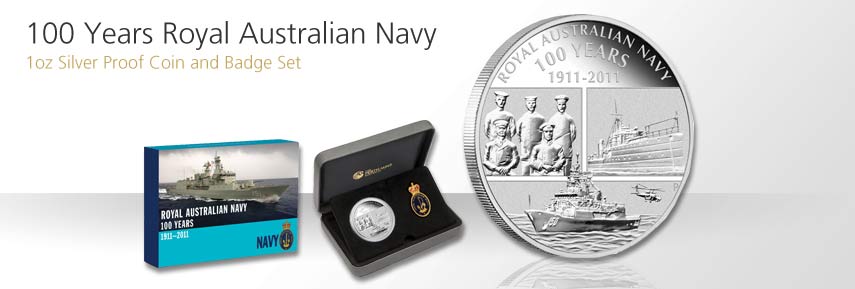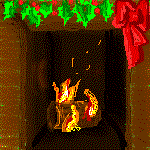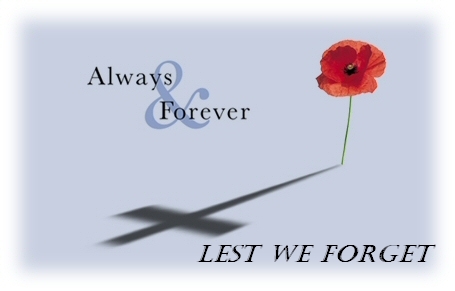Why is this day special to Australians?
At 11 am on 11 November 1918 the guns of the Western Front fell silent after more than four years continuous warfare. The allied armies had driven the German invaders back, having inflicted heavy defeats upon them over the preceding four months. In November the Germans called for an armistice (suspension of fighting) in order to secure a peace settlement. They accepted the allied terms of unconditional surrender.
The 11th hour of the 11th day of the 11th month attained a special significance in the post-war years. The moment when hostilities ceased on the Western Front became universally associated with the remembrance of those who had died in the war. This first modern world conflict had brought about the mobilisation of over 70 million people and left between 9 and 13 million dead, perhaps as many as one-third of them with no known grave. The allied nations chose this day and time for the commemoration of their war dead.
Review of War Caused Disabilities and Pharmaceutical Costs.
Sat May 08, 2010 8:33 am On 7 May 2010, Alan Griffin, the Minister for Veterans’ Affairs and Minister for Defence Personnel, released the Consultation Paper for the Review of War Caused Disabilities and Pharmaceutical Costs. The Paper is the next stage of the review process undertaken by the Department of Veterans’ Affairs, following the Government announcing funding for the review in the 2009-10 Budget.
View the paper http://www.dva.gov.au/benefitsAndServices/pharmreview/Documents/paper.pdf
Submissions are welcome from interested individuals and organisations. The consultation process will be open from 7 May 2010 to close of business 18 June 2010. Following the close of the consultation period, the Department will analyse submissions and prepare a report to the Minister.
Contact Email pharmacycopayreview@dva.gov.au
Mail: Pharmaceutical Costs Review Department of Veterans’ Affairs GPO Box 9998 Canberra, ACT 2601
Now is the time to voice your opinion
The deadline for submissions is 18 June 2010
An ANZAC Story Lest We Forget
 Billy Sing, nicknamed ‘The Murderer’ was a World War 1 hero, once known around the world. But by the time he died in 1943, alone and almost penniless he had all but been forgotten. Billy was born in 1886 in Clermont, QLD to a Chinese father from Shanghai and an Englishwoman. This son of a Chinaman rose above the racist attitudes and laws of the time and was a likeable young bloke admired for his sporting prowess, particularly with the rifle. While still a boy, the story went, he could shoot the tail off a piglet at 25 paces with a .22 rifle.
Billy Sing, nicknamed ‘The Murderer’ was a World War 1 hero, once known around the world. But by the time he died in 1943, alone and almost penniless he had all but been forgotten. Billy was born in 1886 in Clermont, QLD to a Chinese father from Shanghai and an Englishwoman. This son of a Chinaman rose above the racist attitudes and laws of the time and was a likeable young bloke admired for his sporting prowess, particularly with the rifle. While still a boy, the story went, he could shoot the tail off a piglet at 25 paces with a .22 rifle.
From the age of 15, Billy worked as a station hand, ringer and horse drover further cultivating his childhood bush skills, including hunting. He honed his shooting skills at the Clermont Rifle Club, and later at the rifle club in Proserpine. A regular winner of shooting prizes, he was also a good cricketer.
Sing was in his prime when he journeyed to Brisbane to join the 5th Light Horse (LH) Regiment in 1914. The 5th LH was in Egypt when the ANZACs landed at Gallipoli. Leaving their horses behind, Billy’s regiment deployed in May 1915 as Infantry to Turkey’s Gallipoli Peninsula. Trooper 355, Billy Sing became ‘probably the most dangerous sniper in any army throughout the war’, wrote Ion Idriess. Idriess sailed to war on the same boat at Billy and became a popular author after the war. He was also an experienced bushman and at times was Billy’s spotter.
‘Abdul the Terrible’, as the Allies called him, was the decorated Turkish sniper bought to Gallipoli to stop Sing! He methodically studied the Australian’s handiwork – up to nine kills per day. Having finally located Sing’s specially constructed ‘possie’, Abdul prepared to take down his prey – only to be shot between the eyes by Sing.
Abdul was one of Sing’s 201 confirmed Gallipoli kills, though he probably took the lives of many more Turks – there was not always a spotter to verify kills, and it was sometimes difficult to determine if targets that had been hit and fallen into trenches had actually been killed. Though bringing grief to Turkey,
Sing’s exploit saved Allied lives and was perfect propaganda – he was mentioned in despatches, warded the Distinguished Conduct Medal and lauded in newspapers from Sydney to San Francisco.
But it didn’t go all Sing’s way. He was wounded in August 1915, when a Turkish sniper hit the telescope of his spotter, who was badly wounded before the bullet finally came to rest in Billy’s shoulder. As the weather deteriorated, Billy succumbed to the cold, wet weather and the appalling conditions in the trenches and was evacuated to Malta just weeks before the Allies withdrew from the Gallipoli peninsula. Bouts of illness kept Billy in England for some time before he was deployed to the Western Front in January 1917 with the 31st Australian Infantry Battalion, where soon after he was wounded and sent back to England to recuperate. He wrote home, ‘We had an awful time in France this winter; it was the coldest they’ve had for years……It would break your heart to see the dead bodies lying around unburied.’
Following his discharge from hospital he was given leave. Sing headed to Edinburgh, where he had a whirlwind romance with a waitress Elizabeth Stewart. On 29 June they were married. A month later Billy was back in the trenches! Private Sing was awarded the Belgian Croix de Guerre in early 1918, for his role in leading a patrol, killing several German snipers at Polygon Wood in September 1917. Over his period of service he contracted influenza, rheumatism, mumps, had been gassed, shot on two occasions, sustained shrapnel wounds to both legs and his back, spending quite some time in and out of hospitals, eventually causing his medical discharge.
The mustard gas caused lifelong lung disease for Billy and it signalled the end of his military career when in July 1918 he was shipped home. Despite having been wounded, gassed and ill several times he was declared fit and able to work when discharged in Brisbane. For a time Billy was buoyed by an enthusiastic welcome in both Proserpine and later Clermont but that soon faded. He set out to be a sheep farmer like so many other soldiers on blocks donated to returned servicemen by the Federal Government, but his land was poor like many of the blocks in this flawed scheme. Almost a third of the soldiers turned farmers walked off the land – including Billy Sing.
There’s no indication that Billy’s wife was ever part of his new life. There is correspondence showing that he applied for Elizabeth to have free passage from Britain, it doesn’t seem to have eventuated. Though hampered by illness and his wounds, the failed sheep farmer still had to make a living. He turned to gold prospecting and did well enough to go on weekend sprees with his mining mates. He also got a reputation for heavy drinking and a bad attitude. When the gold ran out, Billy turned to labouring in Brisbane where he continued to work hard although complaining of pains in his heart, chest and back.On May 19, 1943, Billy was found dead in his boarding house bedroom. Five shillings were also found but no sign of his war medals. As his humble grave marker in the Lutwyche War Cemetery weathered away, Billy Sing was all but forgotten. 50 years after his death a newspaper article revived interest in ‘this ace Australian sniper’. A plaque was erected on the site where he died and in 1995, a statue of Sing was unveiled with full military honours in his hometown of Clermont. In 2004 Australian Army snipers named their Baghdad post the ‘Billy Sing Bar & Grill’. Last year, on the 66th anniversary of his death, wreaths were laid at Sing’s grave during a ceremony attended by various dignitaries, including the Chinese Consul-General.
Newsreel of Japanese Surrender
Some have seen the still photo’s of the surrender but haven’t seen the newsreel of it.
http://enka2.netorage.com:9711/harddisk/user/lyk36/mumess/376-macarthurjap.htm
Objections by DFWA
Comment on the Bill When the Government announced its intention to amalgamate the Commonwealth military and civilian superannuation boards DFWA wrote to the Minister expressing its strong opposition. DFWA had and still has three key objections: Key Objection 1 The merger proposal ignores the unique nature of military service. All major political parties acknowledge that no other avenue of service to the Australian people places its participants at the same, or even distantly similar, levels of personal and collective risk nor requires the complete surrender of basic human rights to the State. Unique service requires unique solutions, not ones which further blur the distinction between the uniqueness of military service and civilian norms. That is why Australia has a separate Department of Veterans’ Affairs and is a key reason why Australia needs to retain a separate board to administer the military superannuation schemes (one an unfunded defined benefit scheme and the other comprising an employee contributory fund and an unfunded employer defined benefit component). These differ markedly from other Commonwealth Government administered schemes particularly in respect to the specific to ADF disability and death provisions. On the 19th December 2008 The Federal Court of Australia pointed out that “the Minister is required by s 4 of the Military Superannuation and Benefits Act 1991 (Cth) to establish an occupational superannuation scheme for, in substance, members of the armed forces with a deed in the form set out in a schedule to the Act (the Deed). ….The Act also establishes the Military Superannuation and Benefits Board of Trustees No 1. The Board has such functions and powers as are set out in the Deed. Rule 3 of the Deed provides: 3 Functions and powers of the Board (1) The functions of the Board are to administer the Superannuation Scheme and to manage and invest the Fund in accordance with the provisions of the Act and this Deed including, without limiting the generality of the foregoing, the following functions: a. to pay benefits to or in respect of members, and to make payments to and receive payments from the Commonwealth, as provided for in the Act; b. to provide advice to the Minister on proposed changes to the Act and the Deed; and c. to determine interest rates for the purposes of the Superannuation Scheme; (2) The Board has power in Australia and elsewhere to do all things necessary or convenient to be done for, or in connection with, the performance of its functions and, in particular, may: g. establish an Incapacity Classification Committee to determine members’ incapacityclassifications under the Rules; h. establish 1, or more than 1, Reconsideration Committee: i. to examine and report on decisions of the Board and its delegates under the Rules relating to members’ entitlements to benefits; and ii. to reconsider decisions of the Board and its delegates under the Rules relating to members’ entitlements and benefits;” As indicated in this judgement, the military superannuation schemes are specific to the requirements of members of the ADF. Notably the schemes disability and death benefits are unique to the responsibilities of the trustees of the current military schemes and require a different and additional skill set to that needed for the public service schemes. Key Objection 2 The decision was made before the Four reviews1 (two of which are still to be finalised) affecting military superannuation being conducted had reported and introducing such an unexpected change to the governance arrangements for disparate schemes serving distinctly different classes of members was at best premature and at worst unnecessarily provocative. Key Objection 3 The proposed amalgamation was initiated without prior consultation and without regard for the views of key ex-service organisations, including DFWA. subsequent correspondence from the Minister and the DFRDB Authority has not allayed our concerns. In addition, DFWA concerns that the amalgamation proposal would achieve its own momentum despite being contrary to the interests of past, present and future servicemen and women – and therefore to the wider Australian community have now been born out. Other Comments Governing Board (Board of CSC) Clause 8 requires there to be a governing board of directors (Board) of CSC. The function, membership and operation of the Board are set out in Clause 10 – Membership. This board needs a blend of experience and knowledge, including a comprehensive understanding of the unique nature of military service, in order to best serve the military and the wider Australian community. The way it is intended to be constituted gives us no confidence that it will have this and to the extent it may have, that this expertise will have sufficient influence in board considerations to ensure the uniqueness of ADF service is given appropriate weight. The combined effect of subclauses 10(1) and 10(2) is that, in line with the equal representation requirements in the SIS legislation, the Board of CSC consists of an equal number of employer and employee directors (sometimes referred to as “employer representatives” and “member representatives”, respectively). There is also an independent director, being the Chair. Under subclause 10(2), the employee directors are nominated, in writing, by: • the President of the ACTU who represents the interests of members of the civilian schemes and nominates 3 directors; and the Chief of the Defence Force who represents the interest of members of the military schemes and nominates 2 directors. 1 The Review into Military Superannuation Arrangements The Senate Inquiry into the cost of living pressures on older Australians The Matthews Inquiry into Indexation, and The Henry review into Australia’s future taxation arrangements The effective result of these provisions is that although the public service members will be well represented (but not necessarily those retired), the serving and retired men and women of the ADF are left without direct representation on this governing board. To suggest that the CDF provide for that representation is a bridge too far. His nominees will undoubtedly perform their roles with diligence but with the best will in the world they will inevitably represent the ADF as an entity rather than ADF individuals and it is highly unlikely based on experience up until now that they could effectively represent retired members of the military schemes. In any event the total of 2 members in the number of 10 constituting the board inevitably means that the specific nature of the service aspects in board considerations will be subordinated by the weight of numbers even taking into consideration the voting provisions in clauses 22 and 23. This bill proposes the Finance Minister choose the remaining 5 employer directors and represent the employer-sponsor of the relevant civilian and military superannuation schemes, being the Commonwealth. In selecting suitable candidates to act as employer directors, it is intended that the Finance Minister would consult with Ministers in the Defence portfolio but DFWA believes this arrangement would have little practical impact in ensuring a balanced “employer understanding” of the uniqueness of ADF service aspects in these appointments. For the present Minister for Defence Personnel, Materiel and Science. Review into Military Superannuation Arrangements has acknowledged the military schemes disability and death benefits are unique to the responsibilities of the trustees of the current military schemes and require a different and additional skill set to that needed for the public service schemes in its recommendation to establish a single board to manage all military superannuation schemes. DFWA has already advised its agreement with this and has recommended a possible board composition designed to met the governance requirements as well as protect the interests of both the members of these schemes and the Commonwealth. We have suggested a 7-member board constituted as follows: • Independent Chairman • Independent member with superannuation industry expertise • Independent member with investment/financial services industry expertise • 2 employer members (with at least 1 from Department of Defence) • Employee member nominated from within the ADF. • Ex-employee member nominated by the military superannuants’ community. Clauses 31 & 32 – Exemption from taxation Both of these clauses have sub clauses enabling regulations to be made which reduce the scope of the tax exemption. It is not clear how it would be intended to use these but they provide an avenue to siphon off funds to Government revenue that would otherwise benefit fund members with a minimum level of scrutiny. Clause 33 – Source of funds for paying remuneration and allowances Clause 33 sets out the source from which the Chair and other directors of CSC are paid remuneration and allowances. The bill proposes that the Chair and other directors of CSC are paid out of the superannuation fund in respect of which they are performing functions. However, when performing functions in relation to the 1922 scheme, DFRB, DFRDB or PNG scheme, they are paid from the Consolidated Revenue Fund because these schemes do not have a superannuation fund. DFWA presumes that Commonwealth employees nominated to be members will not receive remuneration or allowances under clause 13 in addition to their existing remuneration but would simply be reimbursed expenses in line with existing Commonwealth Government provisions. Financial Impact of Change The assumption that these revised arrangements will result in cost savings and an increase in efficiency is unlikely to be realised. The disparate nature of the military schemes and the governance expertise required inevitably means there would need to specialist “policy committees” formed to provide advice to the governing board and would limit the opportunity for staff rationalisation. It is not hard to envisage the headline savings being quickly absorbed in higher administration costs to the funds. In addition there is a direct cost of $1.1 million to ARIA, the MSB Board and the DFRDB Authority associated with implementing the merger of these boards. The cost relates to tasks such as undertaking due diligence and conducting a communication campaign for scheme members. It would be inappropriate for these costs to be a charge against the funds as this is a government not superannuation fund project.






Recent Comments